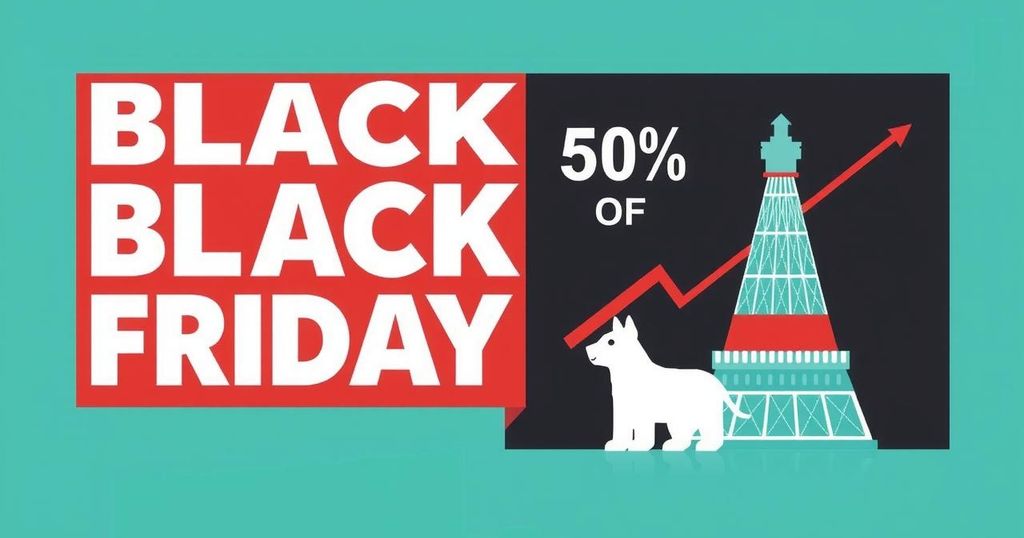Politics
AMERICA, ASIA, BEIJING, BERKELEY, BYU, CHINA, DAVID BROWER, DEMOCRACY, DUBAI, FRONT PORCH REPUBLIC, GLOBAL FOOTPRINT NETWORK, GOVERNMENT POLICY, HARRIS, NATIONAL SECURITY, NORTH AMERICA, PBS, SOCIAL ISSUES, SOCIAL JUSTICE, SOCIETY, TRUMP, UNITED ARAB EMIRATES, UNITED STATES
Jamal Walker
0 Comments
Consumerism, Trump’s Election, and the Call for Limits in America
This article examines the cultural fixation on consumerism in the United States, particularly in the context of Donald Trump’s election victory. It underscores a rejection of limits related to economic growth and consumption, revealing a societal landscape marked by increasing inequality and declining happiness. The author advocates a shift in American values towards moderation and intrinsic worth, warning of the ongoing consequences of unchecked materialism on both individuals and society as a whole.
The writing of this article takes place on Black Friday, illustrating the phenomenon of consumerism as a prevailing cultural force in American society. Examination of Donald Trump’s election victory reveals deeper societal issues, including attitudes toward limits and the relentless pursuit of material wealth, irrespective of the mounting consequences. While countless theories attempt to explain Trump’s rise—ranging from immigration and racism to economic discontent—it is essential to recognize the underlying rejection of constraints that permeates these concerns.
The cultural obsession with consumption, chronicled in the film “Affluenza” and the subsequent book, underscores a centuries-old fixation that began in the post-World War II era. This period initiated a troubling trajectory wherein American material consumption eclipsed the entirety of human consumption preceding 1945. Now, this appetitive behavior stretches globally, posing significant sustainability challenges as outlined by the Global Footprint Network, which suggests that current consumption rates would necessitate nearly two Earths to sustain.
Warnings raised over fifty years ago by the authors of. “Limits to Growth” about unchecked economic growth’s perilous consequences are evident today. Their assertions that a culture of excessive consumption would lead to environmental degradation and resource depletion have largely proven prescient, as climate change exerts increasingly severe impacts on our ecological systems. Environmentalist David Brower poignantly remarked on society’s naive belief in perpetual growth, suggesting a stark disconnect between consumption patterns and ecological realities.
Trump’s appeal, thus, can be seen as reflective of societal expectations that prioritize consumption over qualitative measures of well-being. Economic metrics have become distorted, often focusing solely on personal wealth accumulation rather than holistic assessments of human flourishing. As journalist George Monbiot noted, the emphasis on extrinsic values—such as wealth, fame, and power—is detrimental and threatens to perpetuate further societal unrest in a landscape marked by increasing inequality.
Fundamentally flawed assumptions about continuous economic growth underlie political discourse, with both parties failing to engage meaningfully with the concept of ecological limits. The Republican and Democratic conventions each presented platforms that, while acknowledging environmental concerns, ultimately endorsed narratives of unwavering economic expansion. With increasing consumer pressures, the aspiration of affluence has evolved, exacerbating social disparities as the media perpetuates unrealistic standards of wealth.
This ongoing cycle of consumption, punctuated by a culture of instantaneous gratification, is evident in contemporary consumer behavior, including the ubiquitous Amazon shopping model. This pathway not only fosters discontent among Americans, as evident in declining happiness metrics, but also misaligns traditional conservative values with contemporary practices.
The call to reconsider American values echoes the sentiments found in “America the Beautiful,” a poem advocating for intrinsic values over materialism. The lyrics, penned by Katharine Lee Bates, drive home the necessity of self-restraint and acknowledgment of our limited resources as vital to securing a hopeful legacy for future generations. Until a fundamental shift occurs in American values toward moderation and sustainability, the troubling dynamics of Affluenza will continue to undermine civic unity and fulfillment.
The article explores the intertwined themes of consumerism and American political culture, particularly in the context of Donald Trump’s electoral success despite numerous controversies. It presents a critique of Americans’ addiction to material wealth, tracing historical roots that began after World War II and culminated in a pervasive societal indifference toward limits. The author reflects on the implications of unchecked consumption against a backdrop of environmental degradation and social inequality, positing that America must reevaluate its values in terms of sustainability and holistic well-being rather than relentless accumulation.
In conclusion, the persistent glorification of consumption in American culture significantly impacts the nation’s political landscape, contributing to the appeal of figures like Donald Trump. The refusal to acknowledge ecological constraints has led to systemic disparities and dissatisfaction, challenging the very fabric of societal well-being. A reevaluation of values towards moderation and sustainability is imperative to combat the continuing prevalence of Affluenza and cultivate a more balanced society. Until meaningful change occurs, the cycle of consumption and excess is likely to persist, undermining both individual happiness and collective cohesion.
Original Source: www.frontporchrepublic.com




Post Comment